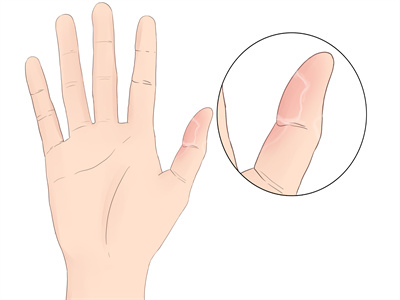How to treat rheumatoid arthritis of the finger joints
Generally, rheumatoid arthritis in the finger joints may be caused by factors such as cold and damp environments, excessive fatigue, bacterial arthritis, viral arthritis, and rheumatoid arthritis. Measures such as general treatment and medication can be taken to improve the condition. Prompt medical attention is advised, and treatment should follow medical guidance. Details are as follows:

1. Cold and damp environments: Prolonged exposure to cold and damp conditions can easily affect the finger joints. Cold causes blood vessels around the joints to constrict, reducing blood supply to the joints and affecting the nutritional metabolism of joint tissues. Damp environments can easily breed microorganisms such as bacteria and fungi, increasing the risk of infection. It is important to avoid prolonged exposure to cold and damp environments and to keep the joints warm.
2. Excessive fatigue: Excessive fatigue may negatively impact the immune system, leading to immune system imbalance. Long-term or excessive manual labor may place the body in a continuous state of stress, producing more inflammatory mediators, which can trigger rheumatoid arthritis in the fingers. Adequate rest should be taken to avoid overexertion. Appropriate physical exercise can strengthen physical health and improve immunity.
3. Bacterial arthritis: Certain bacterial infections may induce rheumatoid arthritis in the fingers. Toxins or metabolic products produced during bacterial infection may act as antigens, stimulating the body to produce antibodies. During the binding of antibodies and antigens, the immune system may mistakenly attack finger joint tissues, causing rheumatoid arthritis and joint pain. Anti-infective and pain-relieving medications such as Cefuroxime Axetil Tablets, Diclofenac Sodium Sustained-release Capsules, and Celecoxib Capsules may be used according to medical advice.
4. Viral arthritis: Viral infections may induce rheumatoid arthritis in the fingers. Viral infections might alter the immune system's ability to recognize threats, causing the immune system to mount a response against its own joint tissues, leading to joint swelling. Antiviral and pain-relieving medications such as Oseltamivir Granules, Ibuprofen Sustained-release Capsules, and Dexamethasone Tablets may be used under medical guidance.
5. Rheumatoid arthritis: When autoimmune function is abnormal, the immune system mistakenly attacks its own joint tissues as if they were foreign pathogens. In the finger joints, immune cells infiltrate the joint synovium, triggering an inflammatory response, which leads to synovial hyperplasia and damage to joint cartilage and bone, resulting in joint stiffness. Medications such as Methotrexate Tablets, Leflunomide Tablets, and Meloxicam Tablets may be used under medical supervision for anti-rheumatic and anti-inflammatory effects.
In daily life, maintaining a healthy lifestyle, avoiding excessive fatigue and cold, damp environments, and engaging in appropriate physical exercise to strengthen the body's resistance are recommended.









